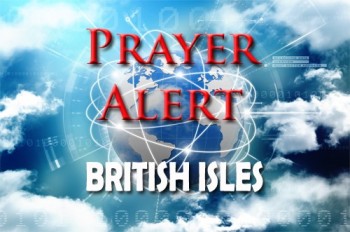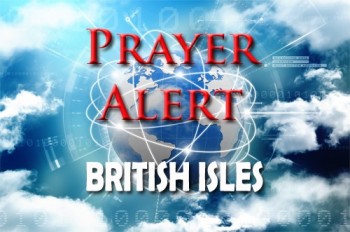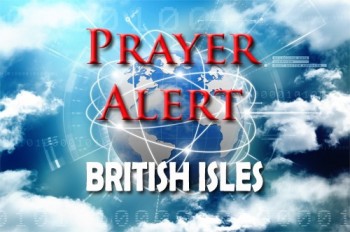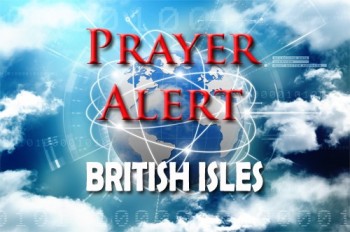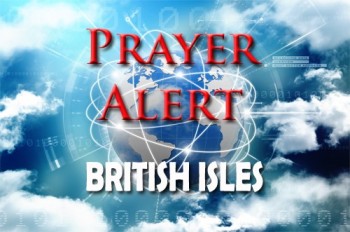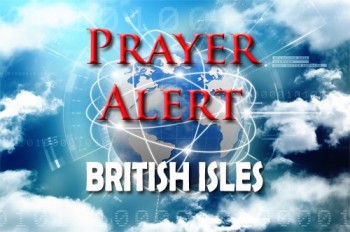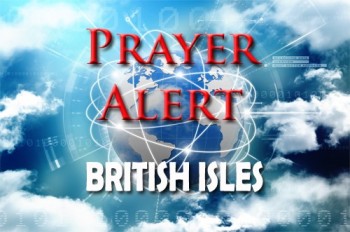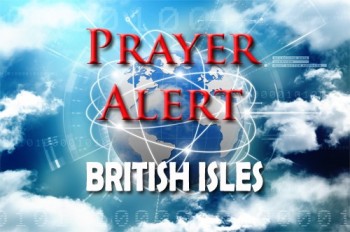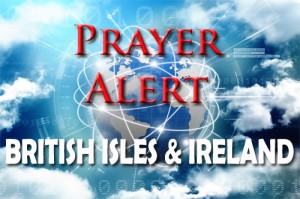Displaying items by tag: Church of England
CofE failing the nation
500+ clergy and lay people signed a letter to the Times calling for a rethink to current guidance on church shutdown. They said that closed churches are stifling their prophetic witness and defence of the poor. They agreed that temporary closure of churches for public worship is necessary in the current crisis. However, the broadcast of services from a closed church is explicitly permitted by government guidelines and almost all other churches are doing this, but ‘the Church of England has gone beyond this advice’. Since the publication of this letter, the CofE has responded by issuing revised guidelines outlining the precautions which must be taken if a church building is being used for private prayer or streaming worship: see
Coronavirus and church
In light of Government guidance around non-essential contact, the Archbishops of Canterbury and York have said that public worship is suspended until further notice. Churches should be open wherever possible, but no public worship services should take place. Prayers can be said on behalf of everyone, and churches should consider ways of sharing this with the wider community. There are digital resources available. Funerals are significant events with family and friends gathering to express grief, give thanks for the life lived, and commend the person into God’s keeping. Christian funerals will continue but with some adaptations - limiting the numbers of those attending to immediate family, and using technology to capture the event for those who are unable to be there in person. Also, social distancing measures should be observed. Churches remain committed to offering pastoral and spiritual support, sharing the love and hope of Jesus Christ. For special prayers and liturgy go here
Church renewal
In February 2019 the Church of England took a historic decision to have a loving, worshipping Christian community on every significant estate in England. That means offering enhanced support to existing churches and finding ways of planting new churches onto those estates from which they are absent. In 12 months they have been developing partnerships with people and organisations who share the Church’s commitment to renewing church life on the estates. These partnerships include other Christian denominations, mission agencies, Christian resource and training providers and the National Estates Churches Network which provides a support network and resources for estate leaders. During 2020 they will continue to use a range of written, spoken and social platforms to raise the profile of the ministry and attract able leaders to this work.
CofE Christmas advert
On 8 December the Church of England released its 2019 Christmas Advertisement, putting real-life stars at the heart of its campaign to invite people to church this Christmas. Dragons, talking carrots, and ET all vie for centre stage in the annual festive advertising bonanza. The video and digital campaign for 2019 (#FollowTheStar) tells the story of Christmas preparations at St Peter’s, Stockton-on-Tees, a church with a special ministry. Featuring in it are refugees and asylum seekers who attend St Peter’s, together with Stockton residents of all ages. The advert is backed by members of a gospel choir singing this year’s Christmas single, a new arrangement of the favourite carol We Three Kings. The campaign hopes to reach many more than last year’s 8 million through social media and broadcasts. Churches and cathedrals will display stars, hand out reflection booklets, and engage many millions more through personal invitations.
UK: Bishops open letter re Brexit
A group of Church of England bishops has issued an open letter on the prospect of a 'no-deal' Brexit and the need for national reconciliation.
The full text can be found below:
The Archbishop of Canterbury has conditionally agreed to chair a Citizens Forum in Coventry and, without prejudice for any particular outcome, we support this move to have all voices in the current Brexit debate heard.
However, we also have particular concerns about the potential cost of a No Deal Brexit to those least resilient to economic shocks.
As bishops with pastoral responsibilities in communities across urban and rural England, we respond to the call by Jesus to tell the truth and defend the poor. We also recognise that our obligations go beyond England and impact on relations with the wider UK and our neighbours in the EU.
Exiting the EU without an agreement is likely to have a massive impact on all our people and the Government is rightly preparing for this outcome.
The Government believes that leaving the EU on 31 October is essential to restoring trust and confidence. It is unlikely, however, that leaving without an agreement, regardless of consequences, will lead to reconciliation or peace in a fractured country.
“Getting Brexit done” will not happen on exit day, and we have to be transparent about the years of work ahead of us in bringing the country together for a better future. We also need to be frank about the potential costs.
Our main social and political priority must be to leave well, paying particular attention to the impact of political decisions on those most vulnerable.
We hold different views about Brexit and how our country should proceed from here. However, although we agree that respecting a public vote is essential, democracy and committed debate do not end after the counting of votes. Our concern for the common good leads us to express concern about a number of matters. Our conviction is that good governance can only ever be based on the confidence of the governed, and that includes minorities whose voice is not as loud as others.
Seeing the evidence of division in every part of England, we are deeply concerned about:
Political polarisation and language that appears to sanction hate crime: the reframing of the language of political discourse is urgent, especially given the abuse and threats levelled at MPs doing their job.
The ease with which lies can be told and misrepresentation encouraged: leaders must be honest about the costs of political choices, especially for those most vulnerable.
The levels of fear, uncertainty and marginalisation in society, much of which lies behind the vote for Brexit, but will not be addressed by Brexit: poor people, EU citizens in the UK and UK citizens in Europe must be listened to and respected.
The Irish border is not a mere political totem and peace in Ireland is not a ball to be kicked by the English: respect for the concerns on both sides of the border is essential.
The sovereignty of Parliament is not just an empty term, it is based on institutions to be honoured and respected: our democracy is endangered by cavalier disregard for these.
Attention must be paid not only to the Union, but also to the meaning of Englishness.
Churches serve communities of every shape, size and complexion. We continue to serve, regardless of political persuasion. We invite politicians to pay attention with us to the concerns we register above and encourage a recovery of civil debate and reconciliation.
Pray: for all the politicians to adopt mutual respect, thoughtful and non-antagonistic wording and tones of speech and behaviour that are commensurate with the responsibility and status of their positions.
Pray: that the issues affecting the marginalised, poor and vulnerable people will not be side-lined.
Pray: for a workable 'deal' and implementation plan to be brokered that is acceptable to all parties.
Pray: for peace, patience and calmness to prevail among the people of the constituent countries of the United Kingdom. Pray for reconciliation of the issues that have divided them.
Church support for new relationship education
This week, a new framework for the teaching of relationships and sex education (RSE) replaced a twenty-year-old version written before smartphones or social media. Despite steps in regulating the internet, primary school-aged children live in a world of rapid online interactions. This new legislation was formed over two years by the Government, with the Church of England among parties engaged in the consultation, to promote healthy resilient relationships set in the context of character and virtue development. It focuses on respecting others, including the beliefs and practices of people with a specific faith commitment, and the many different types of families that make up our cultural context. It makes explicit a shared duty of care between parents and schools, and what takes place in the classroom builds on what has been taught in the home. The new guidance asserts that ‘all schools must teach about faith perspectives on these questions’.
Safeguarding in the CofE
Melissa Caslake, an executive director of children’s services in London who supported children affected by the Grenfell Tower fire, has become the first permanent director of safeguarding for the Church of England. Bishop Peter Hancock said that Melissa’s strong, professional background and experience will strengthen the national team as it continues its work at a time of increasing demand. Melissa’s appointment is part of a commitment to ensure the Church is a safer place for all. He is looking forward to working with her in his role as lead safeguarding bishop. See
CofE Farsi communion service
The growth of the Persian Christian community across the UK has prompted the Church of England to publish a Farsi translation of the Holy Communion service. They held the first Persian worship celebration in Birmingham on 2 March, saying it is a gift that demonstrates their commitment to welcome Iranians into the life of the Church of England. All Anglican churches with people from Iran in their congregations were invited to bring Persians, English, and those from other backgrounds. Although Farsi is the official language of Iran, a number of other languages are spoken. 75% of Farsi speakers also speak one of these other languages. We can pray for the Farsi mother-tongue believers to enter the mission field and reveal God’s love to the Kurds, the Lurs, and other Turkic language groups. See
Evangelism and General Synod
Evangelism will be the ‘clear theme’ of the CofE General Synod, which meets from 20 to 23 February. A new evangelism report states that ‘focused efforts will be needed to multiply and replicate confident disciples who are equipped and released to live out their faith in the whole of their lives’. The report quotes Dr Michael Jinkins, of Louisville Presbyterian Theological Seminary, on baptism: ‘We are soaked to the skin in the death of Christ. We trail wet footprints of the drenching wherever we go.’ It concludes, ‘We need to prioritise how we help people drip their wet footprints into the people and places of their lives, spreading the aroma of the knowledge of Christ everywhere.’ There is an aim to fulfil the vision to motivate and enable worshippers to move from church attendees to advocates and apprentices who are outward-looking and confident in their faith and church.
Proposed covenant for clergy care
A CofE working party has drafted ‘A Covenant for Clergy Care and Wellbeing’, and are inviting people to comment on it. The 'Big Conversation' about clergy care will aim to prevent burnout in church leaders, who are always ‘on duty’ in a job that could never be 9 to 5. The draft document sets out some ways of changing the culture of the Church to enable the care and wellbeing of its clergy to be more fully addressed.
